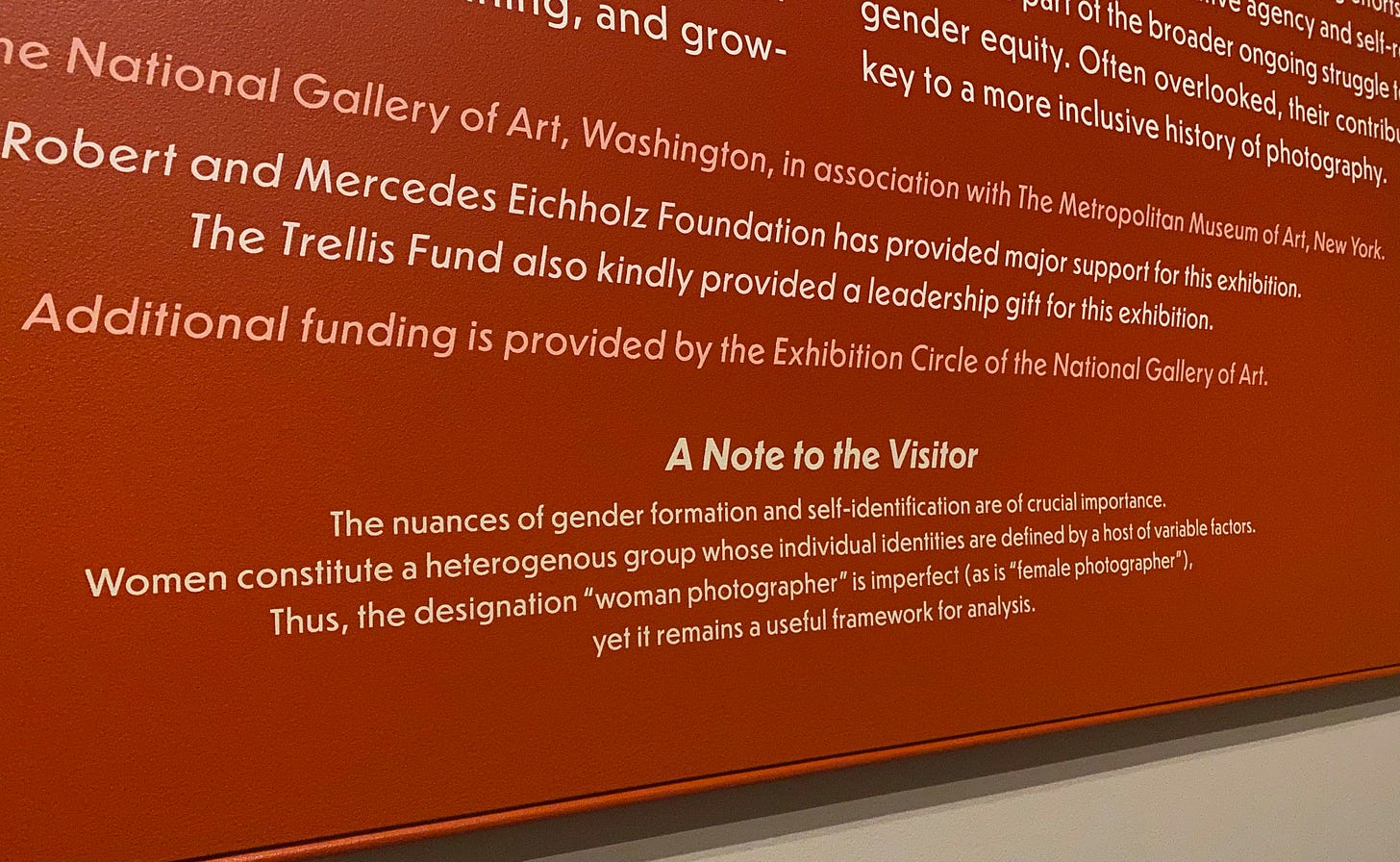Anderson doesn’t need an introduction, but he’s a broadcast journalist who has anchored Anderson Cooper 360° for more than two decades. He’s also a correspondent for 60 Minutes and the host of a podcast centered on grief, “All There Is.” He invited me on the pod after the death of my mother this summer, and this Dishcast episode is the extended version of our conversation, which covers my experience of the AIDS crisis and the deaths of my parents and my beagle, Bowie. I was not expecting to talk about my AIDS memories, so forgive me for some choking up.
For three clips of our convo — on Anderson losing his brother to suicide, how he coped by seeking out warzones, and coming out of the closet on the Dish — head over to our YouTube page.
Other topics: the two of us meeting at the downtown DC YMCA three decades ago; Anderson reading passages from my 1990 piece “Gay Life, Gay Death”'; my best friend Patrick who died of AIDS; my HIV diagnosis in 1993 that derailed my Green Card; my constant fear of deportation; the medieval tortures of AIDS; my photographer friend going blind; the program that paired gay men with patients; the men outed to their parents by AIDS; the deeper closet that black men faced; patients being pariahs among other gays; the partners excluded from hospitals and funerals; the clinical depression I fell into after HIV meds saved my life; my brief thought that God might be evil; how my faith sustained me; survivor’s guilt; the survivors who escaped into meth; the happy-sad music of Pet Shop Boys; the AIDS quilt and Roy Cohn; the gallows humor of Diseased Pariah News; the amnesia around the plague; Virtually Normal; throwing myself into the marriage fight; the queer activists who opposed that fight; speaking at churches; ACT-UP’s rage; the suffering of Christ; Obergefell; the ordeal of my 10-day silent meditation; Anderson losing his father at age 10 and closing down; his mother’s struggle with alcohol; the last time he saw his brother alive; the taboo of talking about death; putting seniors in nursing homes; the decline of religion; Camus; my mom’s mental illness; my parents’ contentious marriage; their divorce after 49.5 years; losing my dad to a ghastly accident in early Covid; my mom’s dementia; her prolonged and agonizing death; the mixed blessing of being so close to her; the heroic sacrifices of my sister; the death of Bowie; the power of venting grief; the powerful act of simply being present with mourners; Anderson’s worries about his gay status reporting in dangerous places; a gay photographer killed by a mob in Somalia; and helping Tim Cook out of the closet.
The deaths this summer of my mom and Chris’ stepdad have spurred many followers of the VFYW contest to air their own grief over the past few months. Last week we heard from the contest’s grand champion, Doug Chini, about losing his stepfather a few weeks ago to pancreatic cancer. The latest example comes from the sleuth known as the Alaskan globetrotter:
I look forward to hearing the upcoming pod with Anderson Cooper about grief. It dominated the last four or five years of my life, but I’m doing much better lately.
I met my Alaskan-Siberian VFYW counterpart, Valya, through an online grieving group after my wife died in early 2021. (Valya also lost her spouse.) A contest view that fall featured a building that looked Stalinesque to me. I had heard her Russian accent and knew she was of a certain age, so I sent her the contest and wondered if she recognized the locale. She mocked my intuition — “that is absolutely not Russia” — but her curiosity took over and she proceeded to solve it (Detroit). Over the next month, while I was using the pretext of the contest to hang out with her in real life, she solved three of the next four views — becoming a VFYW addict as well.
Since joining forces, Valya and I are hitting the correct location about 80 percent of the time. Having two minds attack the VFYW from different cultural backgrounds, travel histories, and tech skills is a recipe for success — and a fine way to become acquainted. Our mutual love of travel and geography, among other things, eventually led to this and that, and we are now living together — and dutifully playing the contest that connected us each week.
Browse the Dishcast archive for an episode you might enjoy (the first 102 are free in their entirety — subscribe to get everything else). Coming up: Reihan Salam on the evolution of the GOP, John Gray on the state of liberal democracy, David Greenberg on his new bio of John Lewis, Christine Rosen on humanness in a digital world, and Mary Matalin on anything but politics. Please send any guest recs, dissents, and other comments to dish@andrewsullivan.com.
From a fan of last week’s episode with Damon Linker:
Just after listening to you two’s interesting analysis of the election, I turn on PBS News. They’re running a segment on why a woman candidate for president lost a second time. All the speculation is about whether a woman can win, and whether her race played into the loss. They have absolutely learned nothing from the outcome, so cemented are their minds in Identity Politics. No solution is possible other than that Americans don’t want a woman president or they don’t want a black woman.
Following that segment, Jonathan Capehart repeated the same mantras. Thankfully David Brooks pointed out to him that people DO sometimes vote on other issues.
But the progressive mindset is rigid. Americans vote according to their identity group, they believe. People who didn’t vote for Harris were sexist or racist or both.
Will any Democrat come along and disabuse them of this folly?
Almost as soon as the election was over, I had texts from friends blaming “white people,” “white women,” Latino men, and others for Harris loss. It’s an al-encompassing mindset — even a mind-virus, as Elon would say. I’m not sure how to cure it.
Here’s a dissent over the episode:
I disagree that in order to respect democracy, we have to honor the choice of the 2024 voters, or bestow Trump with the legitimacy he craves. I live in the state of Georgia, which means that in 2020 he quite literally tried to overturn my vote. And if he’d lost on November 5, he’d have once again dishonestly claimed that he was cheated, and he would have put the country through hell as he tried to strong-arm his way into office. So it’s Trump and his supporters who have contempt for democracy, not anti-Trumpers such as myself.
You now appear to believe that although Trump’s style is distasteful, this is just politics as usual. It is not. And I hasten to observe that this new take of yours does not square with what you were saying very recently: that Trump is profoundly mentally ill and fundamentally unfit. He did not suddenly become a new person on November 5 by virtue of being elected.
You say that Trump’s supporters just rejected far-left craziness around race and gender issues. (And I hate the woke shit as much as you do.) But you could just as easily argue that his supporters voted for endless antagonism, division, chaos and strife. Was that not Trump’s platform? Harris pledged she would govern all of the country (and I believe her), whereas Trump stressed that he intends to govern on behalf of just 51 percent of Americans, and that he hates the 49 percent that don’t support him.
I’ve learned a lot about narcissism in recent years (mainly because it runs in my family), and a classic manipulation tactic is to taunt, troll, threaten, abuse, demean and provoke your enemy, to the point that they overreact. Then when that inevitably happens, you say to everyone, “Look, my opponent is crazy!” It’s an insidious form of gaslighting that Trump has brought it to our politics. He is the worst, most crooked, foul, and dishonest politician this country has ever produced, but then when we say this — because we must, because it’s right in front of our nose — we get accused of having “Trump Derangement Syndrome.”
Now, you are likely going to reply that delegitimizing Trump along these lines has not worked, so we should try something else. You appear to be calling for some form of accommodationism, along with a “let’s wait and see” approach. As if we don’t already know exactly who Trump is.
That does not work for me. You are right to observe that the Trump Story has now grown larger, more epic, and more improbable than anyone could have imagined. (I can see why some think we’re living in a computer simulation.) But the Trump Story isn’t over. And I am not as magnanimous as you are. I will only ever wish him the very worst.
My point is not that Trump is not what he has always been. It is that the American people knew this and still voted for him, and we have to accord that some minimal amount of respect. We will not save the Constitution by rejecting the result it gave us.
Another listener looks to the culture war:
Damon Linker expressed skepticism that people outside of academia or liberal bubbles encounter woke excesses much. Nonsense. We encounter it everywhere.
Just as an example, I tweeted today about a PC Gamer article I came across. PC gaming is a historic bastion of straight men, and they are the primary audience of PC Gamer, but the article was all about how ridiculous it was that straight people want a character badge like the gays, asexuals, and trans people get. Money quote:
not everyone can read the room well enough that they don’t need to wonder why an indie game featuring a bunch of anthropomorphic cats and dogs might not be centering the straight experience. It’s a skill you develop, I guess.
So even PC Gamer is lecturing the straights for not being able to “read the room.” Everything is like this. It’s in the water. There’s nobody that doesn’t encounter some example of it every day, and it’s a big part of the reason Trump is appealing to so many.
Here’s another example — a videogame character who lectures about accountability over pronouns:
Maybe an entry for Poseur Alert. Or maybe you need a new category for this one. These people love new categories.
I used to love Doctor Who. It’s now a seminar in critical gender theory — with nonbinary aliens! Here’s an example from the world of high art:
My heart sank a few years ago when I took my young daughter to see an exhibit of women’s photography at the National Gallery in Washington and was confronted by this … what? … disclaimer suggesting there’s no such thing as women?
As I stared dumbfounded at this declaration (apparently paid for with taxpayer funds), I instinctively knew that I, or the culture, or my favored side of the political aisle (or all three) were in trouble. This sign signaled a mindset that I — a generally dependable liberal Democrat — not only couldn’t support but found absurd. I also found myself surrounded by otherwise smart people in my personal life and political cohort who embraced it, seemingly blindly. What does that bode for the larger US electorate who had even less time for this bullshit?
For me, the crucial line from The Beatles’ tune “Revolution” is: “if you go carrying pictures of Chairman Mao/You ain’t going to make it with anyone anyhow.”
Next up, many readers tackle my latest column, “The Energizing Clarity Of Democracy.” From a reader who “loved, loved, loved it”:
In 2016, I woke up on a Wednesday morning to see that Trump won the election, and I cried of despair. While I didn’t vote this year, I can’t deny that waking up this Wednesday was quite different. I felt a profound sense of relief at his victory, for all the reasons you stated, and more.
For that fact alone, I’ve been labeled “racist” (someone actually said this upon finding out I didn’t vote for Kamala), “fascist” (another accusation), and unworthy of friendship (it’s Day 3 that a colleague left me on “Read” when I admitted I leaned toward Trump). Might I point out that not one Republican treated me this way in 2016 when I voted, loudly, for Hillary.
I want to send your column to everyone I know, though I’m afraid it will fall on many deaf ears. And I want to thank you, since I’ve watched your own struggle over this election, and it takes a lot of emotional maturity to publish what you did.
Another adds, “I love your new constructive tone on Trump. We know how you feel and where you stand, but this shift shows a deep desire for progress. Kudos!” A Trump supporter dissents:
I don’t know which is better: the schadenfreude of watching clueless, wailing, woke leftists blame the electorate for being stupid racists and misogynists, or seeing know-it-alls like you and Bill Maher get knocked off your high horse. Much has been written about progressives getting their comeuppance this past week, but not enough has been said about those like you and Maher who try to thread the needle by acknowledging the grievances of Trump voters fed up with all the establishment-machine’s bullshit, but sanctimoniously taking a giant shit on Donald Trump. As they say, you “talk out your neck” — and both sides of your mouth.
We are missing an important part of this “fuck you” election by ignoring the giant “fuck you” to people like you who try to play it too cute by half. Yes, you see why people like us vote for Trump, but you are better than us and have too much integrity and ethics to vote for Trump like the rest of us.
Listen to this episode with a 7-day free trial
Subscribe to The Weekly Dish to listen to this post and get 7 days of free access to the full post archives.















